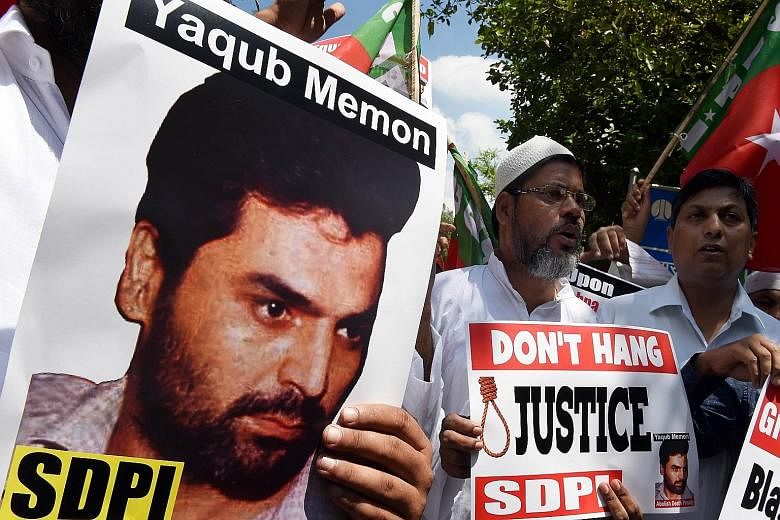India yesterday hanged Yakub Memon for his role in the 1993 Mumbai bombings, hours after the Supreme Court turned down a pre-dawn appeal, further intensifying debate on the death penalty.
Memon, a former accountant who was convicted in 2007, was called the "driving force" behind the series of blasts that hit more than a dozen places, including the offices of Air India and a hotel, killing 257 people.
He had been found guilty of providing cash and arranging transport for those who carried out the attacks, which were intended to avenge the deaths of Muslims in riots a few months earlier.
Memon, who had spent more than two decades in jail, was hanged on his 53rd birthday in the western state of Maharashtra after the last-minute appeal by lawyers failed to save him.
A three-judge bench of the Supreme Court noted that Memon had been given enough time to challenge the death sentence.
The death penalty is rarely carried out in India. There were no executions between 2005 and 2011.
-
RECENT EXECUTIONS
-
MOHAMMED KASAB
The gunman in the 2008 Mumbai terror attacks was executed in 2012.
-
AFZAL GURU
Executed a year later for his role in the 2001 terror attack on the Indian Parliament.
In the past three years, until yesterday, two men had been executed: Mohammed Kasab, a gunman in the 2008 Mumbai terror attacks, was executed in 2012, and Afzal Guru was executed a year later for his role in the 2001 terror attack on the Indian Parliament.
Memon's case in particular has divided public opinion in India. While the ruling Bharatiya Janata Party (BJP) and the victims' families supported the hanging as a tough message on terrorism, others argued for leniency.
Memon was the only one among the 11 people found guilty over the atrocity to have his death sentence upheld on appeal. The others had their sentences commuted to life in prison. Police consider Memon's brother, "Tiger" Memon, and mafia don Dawood Ibrahim to have been the masterminds behind the attacks. Both are still at large.
Memon had also maintained that he gave himself up to police. Online portal Rediff released an article by a former intelligence officer who claimed that Memon had helped investigators unravel the plot and bring back other members of his family from Pakistan, where they had been hiding. Three of them are serving life in prison for their roles in the bombings.
Some critics also felt that Memon's hanging would deter others from helping the authorities.
"It seemed like there was some understanding with him (and the authorities). And authorities not having acknowledged it to dilute the sentence is clearly a disincentive in the future," said former Indian diplomat K. C. Singh.
In India, most death penalties handed out by the lower courts are commuted to life imprisonment by the higher courts.
Crime statistics show that 4,321 of 5,776 death penalties were commuted to life between 2001 to 2011. Many prisoners have been on death row for years.
The political class remains divided on the death penalty.
Congress leader Shashi Tharoor tweeted that he was "saddened by news that our government has hanged a human being" while BJP leader Shahnawaz Hussain said "justice has been delayed but it has been given".

